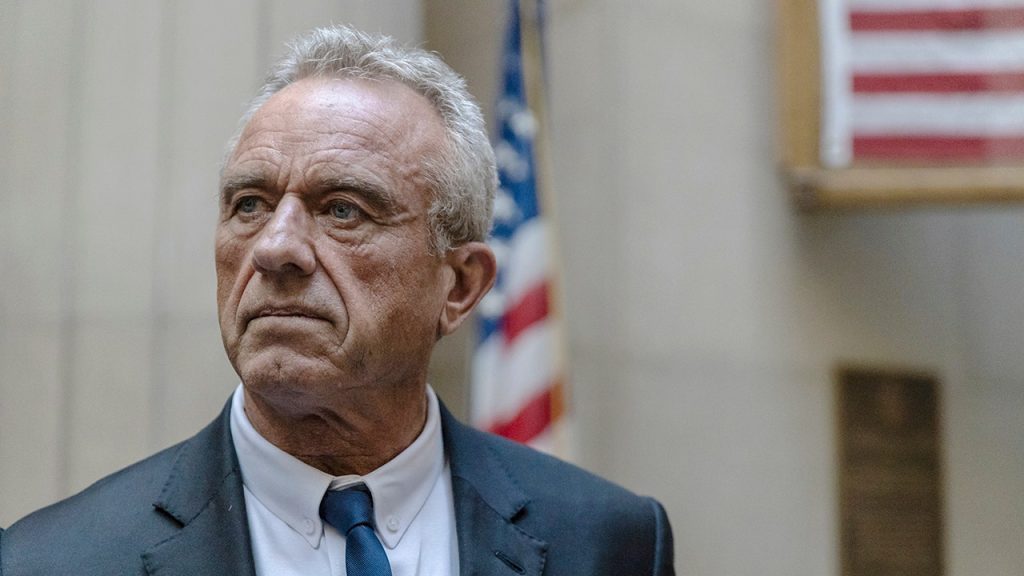Robert F. Kennedy Jr.’s nomination for Secretary of the Department of Health and Human Services (HHS) presents a fascinating political tableau, fraught with potential challenges and unexpected alliances. Kennedy, a former Democrat turned independent presidential candidate who ultimately endorsed Donald Trump, now finds himself navigating a complex confirmation process that will test his ability to garner bipartisan support. His initial meetings with Republican senators mark the beginning of this intricate dance, but Kennedy has also indicated his intention to engage with Democrats on Capitol Hill, though the specifics of these meetings remain undisclosed. This outreach suggests an awareness of the hurdles he faces and a strategic effort to build a broad coalition.
Kennedy’s controversial stances on several key issues have raised concerns among both Republicans and Democrats. His vocal skepticism towards vaccines has drawn criticism from members of both parties, potentially alienating senators who prioritize public health and established scientific consensus. While this position could resonate with some Republican constituents, it may prove a significant obstacle to securing the necessary votes for confirmation. Simultaneously, Kennedy’s pro-choice stance on abortion, a position diametrically opposed to the views of many Republicans, adds another layer of complexity to his confirmation prospects. This stance may attract support from some Democrats but could alienate social conservatives within the Republican party, further complicating his path to confirmation.
Adding to the intricate web of conflicting interests is Kennedy’s critique of the food industry and farming practices. While this position has garnered some favor among Democrats concerned about environmental issues and corporate influence, it has raised red flags for Republicans representing agricultural states. These senators are wary of policies that could negatively impact farmers and ranchers, and Kennedy will need to carefully address their concerns to avoid further erosion of support within the Republican ranks. The intersection of these seemingly disparate issues – vaccines, abortion, and agriculture – creates a unique challenge for Kennedy, requiring him to navigate a political minefield with a diverse and potentially skeptical audience.
The composition of Kennedy’s potential Senate support remains uncertain. It is unclear whether he can secure the backing of all Republican senators, given his divergence from party orthodoxy on abortion and his potentially controversial views on vaccines. The extent to which Democratic senators might be willing to cross party lines to support him is also an open question. His pro-choice stance and critiques of industrial agriculture may resonate with some Democrats, but his anti-vaccine views could prove a bridge too far. The dynamics of the Senate confirmation process will likely necessitate a careful balancing act, requiring Kennedy to appeal to a diverse range of interests while simultaneously addressing concerns about his past statements and positions.
Kennedy’s strategy of engaging with both Republican and Democratic senators reflects the unique challenges he faces. His meetings on Capitol Hill are crucial opportunities to address concerns directly, clarify his positions, and build bridges with potential allies. The success of his confirmation bid hinges on his ability to convince a sufficient number of senators, from both sides of the aisle, that he is committed to serving the public interest and can effectively lead the Department of Health and Human Services. The coming weeks will be crucial in determining whether Kennedy can assemble the necessary coalition to overcome the hurdles presented by his controversial past and secure confirmation.
In essence, Robert F. Kennedy Jr.’s nomination represents a high-stakes political gamble for both himself and the incoming Trump administration. His confirmation hearings will be a closely watched spectacle, offering a glimpse into the shifting sands of American politics and the intricate interplay of ideology, personal history, and political pragmatism. The outcome will not only determine the leadership of a vital government agency but also serve as a barometer of the current political climate and the ability of individuals with unconventional backgrounds to navigate the complex terrain of Washington D.C.

